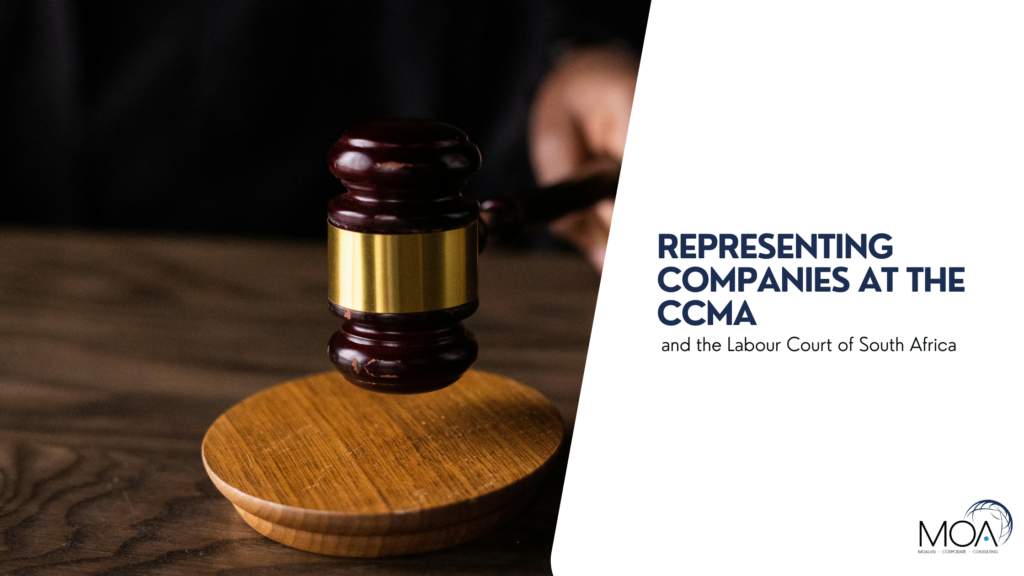Navigating employment disputes can be challenging for companies in South Africa. The Commission for Conciliation, Mediation, and Arbitration (CCMA) and the Labour Court are integral institutions for resolving workplace disputes. Understanding how to represent your company effectively at these forums is essential for ensuring compliance with labor laws and protecting your business interests.
What is the CCMA?
The CCMA is an independent dispute resolution body established to mediate and arbitrate labor-related disputes. It provides a platform for employees and employers to resolve issues such as unfair dismissals, workplace discrimination, and wage disputes. Unlike the Labour Court, the CCMA process is less formal, making it accessible to both parties without requiring legal representation.
Key Steps for Representation at the CCMA
- Understand the Process
The CCMA process begins with conciliation, where a commissioner mediates discussions between the employer and employee to reach a mutual agreement. If conciliation fails, the matter may proceed to arbitration, where a binding decision is made. - Prepare Thoroughly
- Documentation: Gather all relevant documents, such as employment contracts, dismissal notices, and records of prior communications.
- Witnesses: Identify individuals who can provide factual support during proceedings.
- Compliance: Ensure your company followed due process in line with the Labour Relations Act (LRA).
- Present Your Case Effectively
Be clear, concise, and factual in presenting your arguments. Avoid emotional responses and focus on the evidence to support your position. The aim is to demonstrate that your actions were fair and in compliance with labor laws.
When to Approach the Labour Court
If either party is dissatisfied with the CCMA arbitration award, they may escalate the matter to the Labour Court. This forum handles more complex labor disputes, including reviews of CCMA awards, strikes, and collective bargaining issues.
Tips for Representing Your Company at the Labour Court
- Engage Professional Expertise
The Labour Court process is more formal, often requiring legal representation. It’s advisable to work with a qualified labor law attorney or an industrial relations specialist. - Comply with Filing Deadlines
Applications to review CCMA awards must be filed within six weeks of receiving the award. Adhering to these timelines is crucial to avoid procedural dismissals. - Focus on Legal Principles
At this stage, the focus is on the procedural fairness and correctness of the CCMA process. Clearly outline any perceived flaws in the arbitration award or procedural errors that occurred during the CCMA hearing.
Why Proper Representation Matters
Representation at the CCMA and Labour Court is about more than just defending your position—it’s about ensuring fair labor practices and protecting your company’s reputation. Poor representation can lead to unfavorable decisions, financial losses, and damage to workplace morale.
Conclusion
Whether at the CCMA or the Labour Court, representing your company requires thorough preparation, a strong understanding of labor laws, and effective communication. Investing in professional guidance and following due process can make all the difference in achieving a favorable outcome. At the heart of every case is the goal of fostering fair and compliant labor practices, which ultimately benefits both employers and employees.

